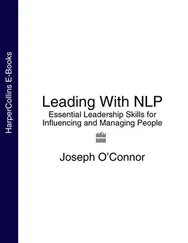John Gray - Children Are from Heaven - Positive Parenting Skills for Raising Cooperative, Confident, and Compassionate Children
Здесь есть возможность читать онлайн «John Gray - Children Are from Heaven - Positive Parenting Skills for Raising Cooperative, Confident, and Compassionate Children» весь текст электронной книги совершенно бесплатно (целиком полную версию без сокращений). В некоторых случаях можно слушать аудио, скачать через торрент в формате fb2 и присутствует краткое содержание. Год выпуска: 1999, ISBN: 1999, Издательство: HarperCollins e-books, Жанр: psy_childs, sci_pedagogy, Психология, на английском языке. Описание произведения, (предисловие) а так же отзывы посетителей доступны на портале библиотеки ЛибКат.
- Название:Children Are from Heaven: Positive Parenting Skills for Raising Cooperative, Confident, and Compassionate Children
- Автор:
- Издательство:HarperCollins e-books
- Жанр:
- Год:1999
- ISBN:978-0-06-133886-1
- Рейтинг книги:4 / 5. Голосов: 1
-
Избранное:Добавить в избранное
- Отзывы:
-
Ваша оценка:
- 80
- 1
- 2
- 3
- 4
- 5
Children Are from Heaven: Positive Parenting Skills for Raising Cooperative, Confident, and Compassionate Children: краткое содержание, описание и аннотация
Предлагаем к чтению аннотацию, описание, краткое содержание или предисловие (зависит от того, что написал сам автор книги «Children Are from Heaven: Positive Parenting Skills for Raising Cooperative, Confident, and Compassionate Children»). Если вы не нашли необходимую информацию о книге — напишите в комментариях, мы постараемся отыскать её.
Children Are from Heaven: Positive Parenting Skills for Raising Cooperative, Confident, and Compassionate Children — читать онлайн бесплатно полную книгу (весь текст) целиком
Ниже представлен текст книги, разбитый по страницам. Система сохранения места последней прочитанной страницы, позволяет с удобством читать онлайн бесплатно книгу «Children Are from Heaven: Positive Parenting Skills for Raising Cooperative, Confident, and Compassionate Children», без необходимости каждый раз заново искать на чём Вы остановились. Поставьте закладку, и сможете в любой момент перейти на страницу, на которой закончили чтение.
Интервал:
Закладка:
LAUREN: I will not stop, and you can’t make me stop.
ME: I know I can’t control what you do when I am not with you. I can’t stop you from swearing with your friends, but I can stop you from swearing in front of me. Around me, I want you to use polite words.
LAUREN: And what if I don’t? What are you going to do about it?
ME: I will just ask you to stop and remind you that I don’t want you to swear. I want you to use polite language.
LAUREN: And what if I don’t?
ME: If you continue, then you will have to take a time out.
That was the end of the discussion. We both had an unfriendly attitude for the rest of the evening, but then it was forgotten. She was clearly testing the limits of the new power and freedom of being in the middle school and was just getting used to the part of herself that wanted to challenge me.
A few days later, she swore again. By this time, we had both had time to think about this new challenge. When she got in the car, she began swearing about someone she found frustrating. My response was the same, “Lauren, I don’t want you to use that language around me.”
She said, “Daddy, it’s hard not to swear. All the kids do it. I feel like it builds up inside me, and I have to get it out. I don’t know what to do.”
I told her, “I’ve been thinking about this and think I have a good compromise. I just want you to do your best to be polite. If you feel the need to get it out sometimes, I will give you permission to swear when you need to but to make sure you learn to control your swearing you’ll have to ask for permission. You know how in the movie Star Trek the crew asks the captain for permission to speak freely? If you ask me first, then I will determine if it is an appropriate time to speak so freely.”
Since that time, this creative solution has worked wonderfully. When she feels she has to say something mean or not nice, she immediately whispers in my ear with a little smile, “Permission to speak freely?” If I agree, she then happily speaks out her swear words or mean comments. In this way, she learned to control her inner feelings and speak politely when that was required.
MAKING DECISIONS
Another area in which parents give up control is by letting their children make too many decisions. When children are given too much independence before the age of nine, they are easily wounded by making the wrong choices or decisions. When parents let them make their own decisions, if the outcome is not desirable children begin to doubt their ability to make decisions and become insecure. This insecurity can last a lifetime, causing an adult to be indecisive or unable to make a lasting commitment.
When parents are in control, until they are nine years old children should never be responsible for making choices or decisions. Certainly, they can voice their wants, wishes, needs, and feelings but the parent should make the decision.
Even up to puberty, a parent should still make most of the decisions. When a child says, “Do I have to go?” the answer should usually be yes.
Until they are nine years old, children
should never be responsible for making
choices or decisions.
When parents directly ask their children what they want or how they feel about something, even though the parents are making the final decision, children may get the impression that they are in control and not the parent. Positive parenting skills promote listening and considering children’s feelings and wants, but they don’t encourage parents to ask for them directly.
Certainly, some asking is fine, but it is better when children express their feelings on their own or in resistance to your control. Instead of asking, “How do you feel about not going to the park?” a wise parent says, “You look upset that you can’t go to the park.” By not asking, a parent does not give a child the message that his or her feelings control situations, and too much attention is not put on the child. Children are not ready for this kind of control until they are nine years old.
THE CYCLES OF SEVEN
During the first seven years, children are primarily dependent on the parents or primary caretaker to develop a sense of self. During the next seven years (ages seven to fourteen), children are still dependent on parents, but a shift takes place and they become more dependent on siblings, relatives, and friends to determine a positive sense of self.
During the third cycle of seven years (ages fourteen to twenty-one), teenagers and young adults look to peers and others with similar goals or expertise in achieving their goals to help define and develop a sense of self.
The first stage is a time of getting what they need from their parents or primary caretakers. In the second stage, they develop a sense of self by interacting with others in a safe environment. Children’s greatest need is to play and have fun. This is a time when parents should try to make things as fun, safe, and easy as possible. When children have learned how to get what they need in the first seven years and how to have a good time in the second stage, then they are ready to work hard and discipline themselves in the third stage.
Children’s greatest need between seven and
fourteen is to play and have fun.
It is a mistake to push children too hard in the first fourteen years. This is the time when they are supposed to learn how to be happy. The ability to be happy is one of life’s most important skills. Happiness doesn’t come from the outer world, it comes from within. It is a skill. Happy people are happy, regardless of the outer circumstances.
Many parents push their children to grow up too soon because they want their children to be happy in life. They don’t realize happiness is a skill learned during the second stage. No matter how successful children may become in life, if they haven’t learned to be happy early on, they won’t be happy.
Happiness is learned through play. From the age of seven to fourteen, children should be encouraged to play and have a good time. With this basis, they will be ready to work hard in school to prepare for working hard in the world. Too much pressure to make good grades or do chores around the house can prevent children from developing the ability to be happy and enjoy their lives. When children experience that learning and chores are fun, they will not only be happier in life but they will enjoy their work and continue learning for the rest of their lives.
Too much pressure to make good grades or
do chores can prevent children from learning
to be happy.
In the third cycle of seven, from fourteen to twenty-one, teens have a much greater need to get the support of other teens. This is when peer pressure dramatically increases. If parents have not nurtured a strongly felt connection by means of good communication skills, their teens will turn to their peers for support and will be at risk of being influenced by the wrong element.
WHY TEENS REBEL
In stage three, it is natural for teens to seek out the support of other teens, but, in doing this, they don’t have to stop feeling their need for parental and family support as well. When children are raised with positive parenting skills, teens don’t need to rebel in order to develop a sense of self. At each stage of development, they have already experienced the freedom to be themselves. As a result, they have no need to rebel.
Teens rebel if they were not given
enough freedom and support to be
themselves as children.
To resist unhealthy pressure from other teens, your teen needs to feel connected at home. This is accomplished not by increased control, but by applying the five skills of positive parenting. Teens need someone they can come to for understanding, acceptance, advice, and direction. They will only seek out their parents’ support if parents know how to give them what they need.
Читать дальшеИнтервал:
Закладка:
Похожие книги на «Children Are from Heaven: Positive Parenting Skills for Raising Cooperative, Confident, and Compassionate Children»
Представляем Вашему вниманию похожие книги на «Children Are from Heaven: Positive Parenting Skills for Raising Cooperative, Confident, and Compassionate Children» списком для выбора. Мы отобрали схожую по названию и смыслу литературу в надежде предоставить читателям больше вариантов отыскать новые, интересные, ещё непрочитанные произведения.
Обсуждение, отзывы о книге «Children Are from Heaven: Positive Parenting Skills for Raising Cooperative, Confident, and Compassionate Children» и просто собственные мнения читателей. Оставьте ваши комментарии, напишите, что Вы думаете о произведении, его смысле или главных героях. Укажите что конкретно понравилось, а что нет, и почему Вы так считаете.












